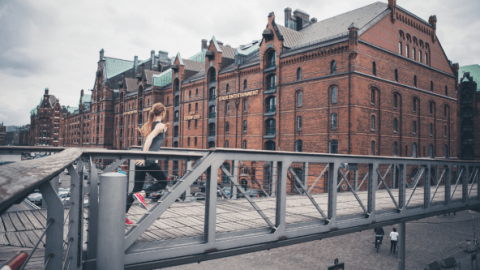"Global Active Cities" such as Hamburg define themselves, among other things, through sport.
Lack of exercise as background
The Active Well-being initiative was founded due to the ever-increasing lack of physical activity worldwide, which causes civilisation diseases such as diabetes or cardiovascular complaints to grow. Although the health-promoting effects of sport and exercise are well known, only 43 percent of people in Germany meet the minimum requirements of the World Health Organisation (WHO), which recommends at least ten minutes of continuous physical activity daily.
Simplifying access to sport
Sport, exercise and the active shaping of everyday life are intended to increase the quality of life of the inhabitants in the cities. In addition, the "Global Active City" label also creates a political stir. The high recognition that the label brings improves a city's reputation at local, regional, national and international level. It would be desirable if more cities worldwide applied for the title: A promotion of mass sports, school sports, club and recreational sports, but also everyday movement situations such as the active way to school or work is part of it. Refugees, children and senior citizens must also be offered visible sporting opportunities. In urban development, a number of things must be taken into account if a city wants to be considered an "active city": For an active lifestyle of people, it is important that the city enables movement - for example, with a developed cycle path system, green spaces and good footpaths.
Practical example: Hamburg
Hamburg's sporting infrastructure, with around 1,600 sports facilities, 700,000 sportspeople in clubs and studios and an Olympic bid for 2024/28, makes the city one of the sportiest metropolises today. In addition, there are schools and schoolyards that promote physical activity, good cycle paths and attractive, safe routes for jogging and walking. The Global Active City award is considered a premium label of mass sport and was awarded to the city of Hamburg in 2018. The aim is to achieve more quality of life through sport and also to boost the city's development via the sport factor. "To be able to use the full potential of sport for a good life and coexistence in Hamburg, we want to anchor sport and exercise in all areas of social life," says Sports Senator Andy Grote.
Against this background, the city of Hamburg has invested in non-binding, free fitness offers in public spaces, e.g. in parks and green areas. In order to be able to offer sport for everyone and everywhere, investments have been made in the acquisition of new equipment, trainers, supervisors and the evaluation of the measures.
With the strategy of the "Active City" concept, Hamburg can use the positive effects of sport and exercise in many different areas: In addition to health promotion, social areas such as integration and inclusion can be improved, and citizens also benefit from more flexible mobility. Furthermore, the implementation of the active city concept is economically profitable. However, the primary objective is to make residents aware of the health-promoting effects of sport and physical activity.
